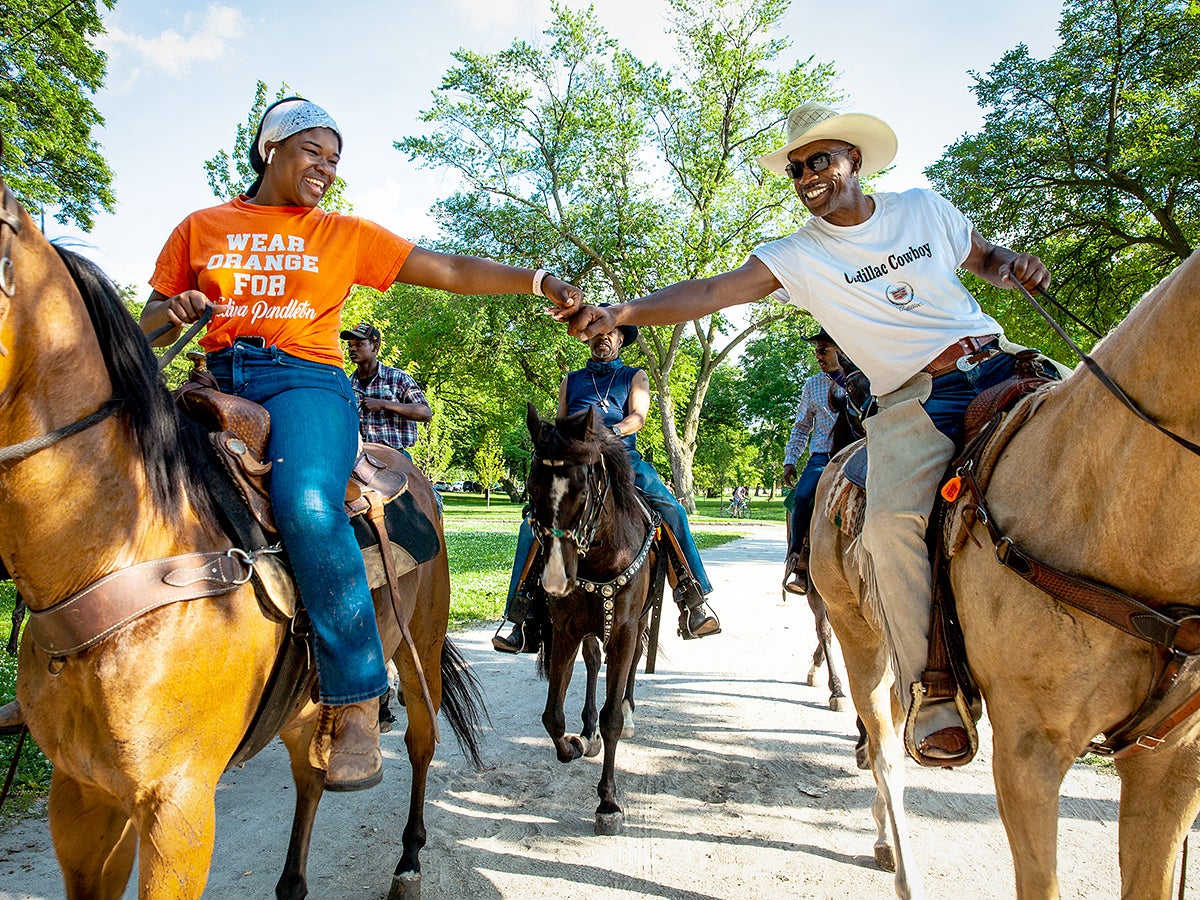This Summer, We Celebrate Black Resilience
Across the nation, people are reclaiming Black spaces as equally deserving of a healthy environment and protection under the law.

This page was published 4 years ago. Find the latest on Earthjustice’s work.
Juneteenth is more than a commemoration of Black freedom — an ideal that came with many caveats in the United States. More truthfully, it’s a celebration of our determination to thrive in defiance of slavery’s echoes on our social institutions and the legacy of harm it continues to exact on our communities.
Since the inaugural Juneteenth in Texas in 1866, Black communities have contended with rigged institutions that sacrifice their health for profit. In environmental reporting, the phrase “predominantly Black” is invariably followed by appalling stories of toxic exposure and virtually nonexistent enforcement of public health laws. Black neighborhoods are disproportionately chosen to house polluting factories and oil refineries, and the residents pay for those decisions in higher rates of cancer, kidney disease, and asthma.
It’s a story as old as Jim Crow, but it’s not the only story to tell.
Across the nation, people are reclaiming Black spaces as equally deserving of a healthy environment and protection under the law. Below are stories of some of the communities that Earthjustice is fighting alongside, taking polluters to court and supporting our clients as they reimagine their communities as places where people can breathe clean air, drink clean water, and flourish in their environments.
Michigan Community Stops Trump Administration Power Grab
Residents of River Rouge, a Detroit-area town, cheered when an energy company whose legacy of pollution dates back to the mid-1900s committed to closing its coal plants and offered $7.5 million in clean energy investments for the community. The ink had barely dried on the deal when the Trump administration tried to rip it up, citing that the community benefits went beyond what the government thought was appropriate.
This was a radical interpretation of the U.S. Constitution, and it would have set a dangerous precedent for the enforcement of environmental laws. Earthjustice challenged the administration’s meddling on behalf of the Sierra Club and in partnership with local community leaders. In the end, the courts sided with the people of River Rouge, delivering a hard-fought victory for environmental justice. Read more.
Louisiana Organizers Put Big Oil on Blast
On the banks of the Mississippi River, coastal Louisiana communities are under siege with the highest concentration of polluting facilities anywhere in the country. The region, dubbed “Cancer Alley” for its high rates of cancer among residents, is at even greater risk of inescapable toxic exposure. If a massive, $9.4 billion petrochemical plant is approved for construction, locals would be forced to breathe chemical emissions equal to that of almost three million cars.
Earthjustice is representing community organization RISE St. James in this court battle. The organization’s founder, Sharon Lavigne, has gained international recognition for her group’s successful resistance of fossil fuels expansion in the region. With Lavigne’s grassroots leadership and Earthjustice’s legal expertise, Big Oil is officially on notice. Read more.
Florida’s Waters Are Rising, But So Are Its People
After Hurricane Irma slammed into Florida in 2017, the community of Dunbar was left without power for twelve days, in stark contrast with the wealthier, predominantly White sections of Fort Myers. In the crucial days after the hurricane, Dunbar resident Crystal Johnson stepped up where the city government failed in its duty to her community.
Johnson organized her community to create a makeshift command center for food, supplies, and relief information in front of the locked doors of a local community center. Today, Johnson teaches hurricane preparedness and advocates for climate resilience plans in Florida that will protect communities like hers from the intensifying impacts of climate change. Read more.
Using Civil Rights Law to Fight a Human Rights Crisis
Basic sanitation is a human right to which over one million people in the U.S. lack access. Due to historical housing discrimination, this public health crisis mainly affects low-income Black residents who can’t afford the necessary upgrades — or the city fines that punish them for being poor. Along Alabama’s Black Belt, for example, people’s homes are flooded with raw sewage from aging sanitation pipes, spreading parasites and diseases throughout entire counties.
Catherine Flowers, founder of the Alabama Center for Rural Enterprise, is working to expose and solve the nation’s hidden sanitation crisis. Flowers has partnered with Earthjustice to file civil rights complaints with state and county public health departments for spreading misinformation about the health risks of raw sewage and for her county’s discriminatory enforcement of wastewater laws. Her work is gaining momentum, and her platform is growing. In 2020, Flowers became a MacArthur Foundation Fellow, and she later joined the Biden administration’s environmental justice task force. Read more.
As Black activists and community leaders demonstrate every day, our experience is not defined by how we are oppressed, but by how we rise. We persist in defiance of a supremacist state. We raise our voices in power against the threat of subjugation. And we grow our roots and communities, no matter how inhospitable the environment.